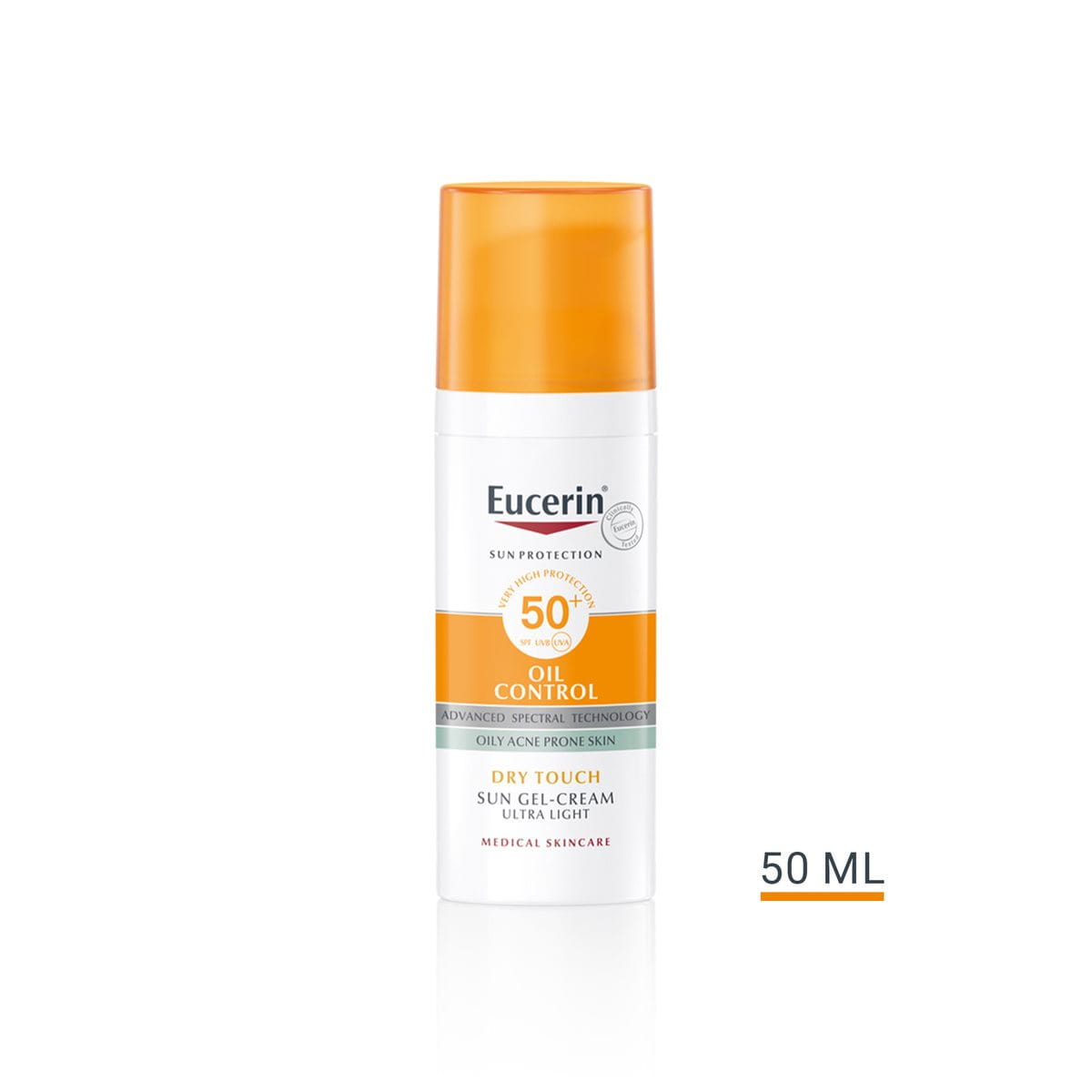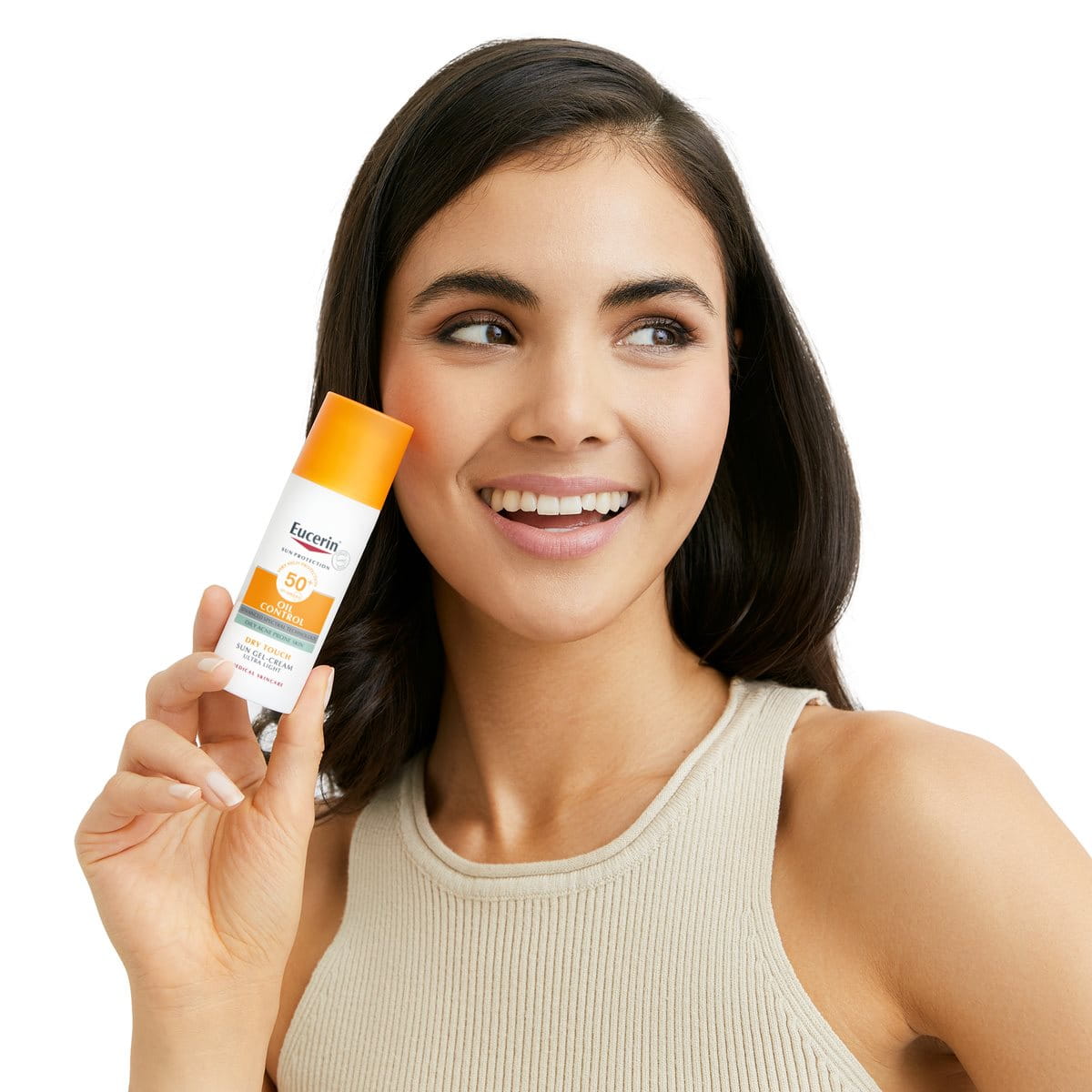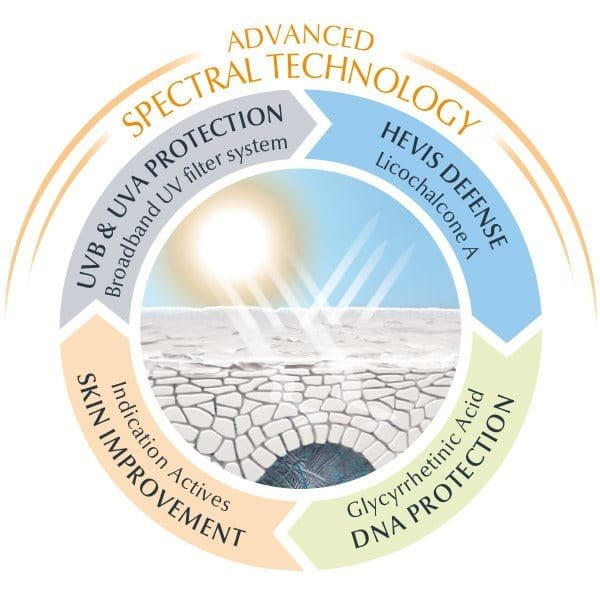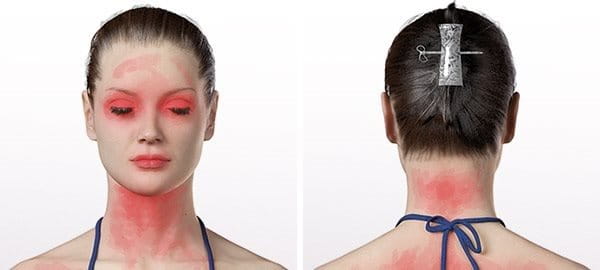We take responsibility. For your skin. And our planet.


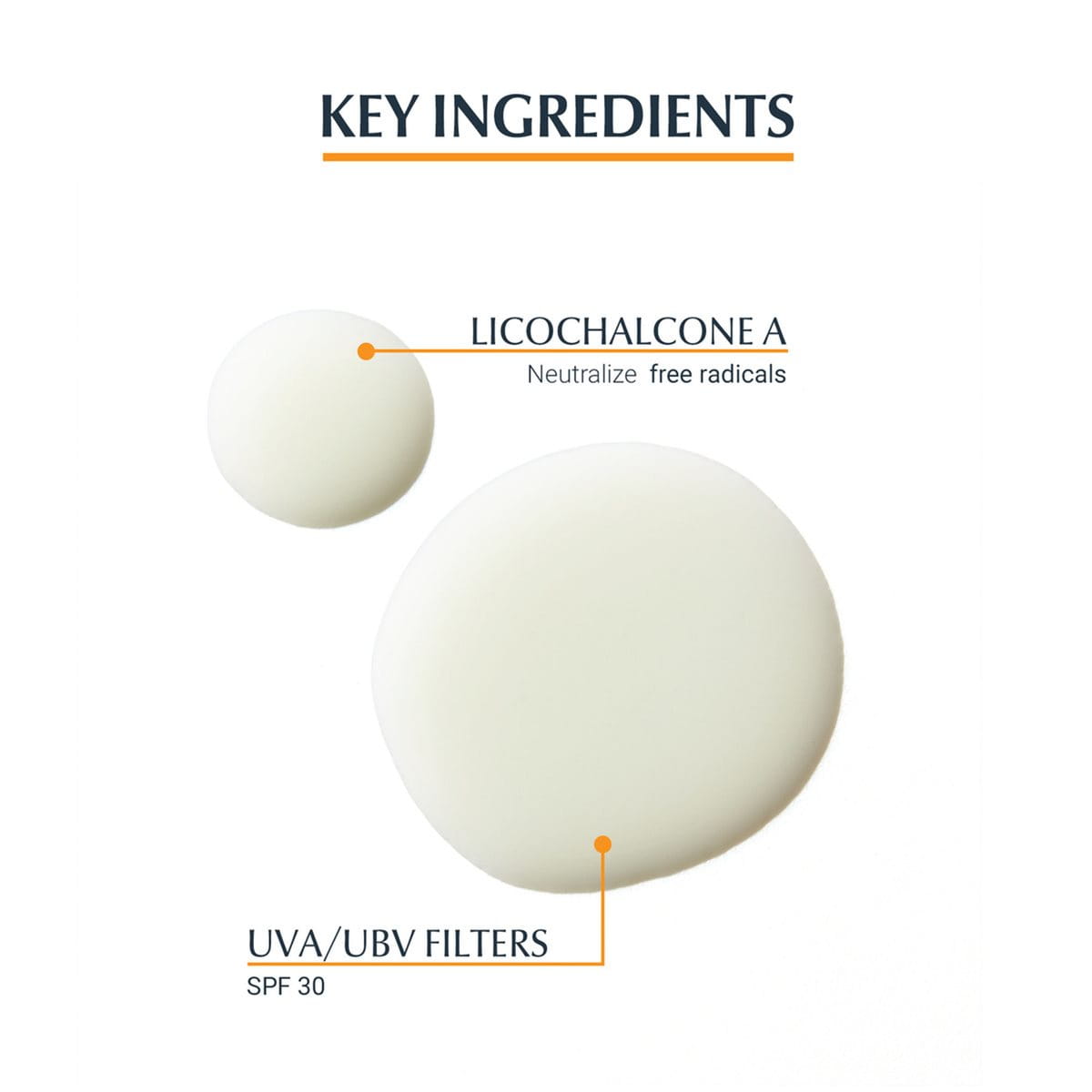

We take responsibility. For your skin. And our planet.
About
Dry touch gel-cream: a non-sticky, non-greasy sunscreen for the body
UV light is the main cause of sun-induced skin damage, but high-energy visible (HEVIS) light can also trigger free radicals that cause further stress to skin.
Eucerin Sun Gel-Cream Dry Touch Sensitive Protect SPF 50+ is an ultra-light, non- greasy sunscreen for the body. It’s clinically and dermatologically proven to be suitable for all skin types including sensitive, oily and acne-prone skin.
The gel-cream sunscreen offers very high UV protection: the UVA and UVB filters meet the high standards defined by Cosmetics Europe and the levels of UVA protection are higher than the EU minimum recommendation. Eucerin’s Advanced Spectral Technology combines these broadband and photostable UVA/UVB filters with Licochalcone A to neutralize free radicals caused by UV and HEVIS light. The formula also contains Glycyrrhetinic Acid, which supports skin’s own DNA repair mechanism, and Oil Control technology with mattifying pigments that leave an immediate dry touch finish on skin.
Eucerin Sun Gel-Cream Dry Touch Sensitive Protect SPF 50+ absorbs quickly and does not leave any residue on skin. It’s extra water-resistant, sweat resistant and ‘anti-sand’ (sand is less likely to stick to your skin). And, like all sun protection products in the Eucerin range, it is free from octinoxate and oxybenzone – UV filters known to be harmful to coral reefs – and is compliant with the Hawaii Reef Bill.
How to Use
Step-by-step guide for Sun Face Oil Control Gel-Cream SPF 50+
Choose a product that offers the right level of protection for your skin. It should protect against UVA and UVB rays and offer HEVIS light defense. It should also be tailored to your skin type and condition.
It’s important to use sufficient product and to reapply it regularly. You can use your palm to measure how much product to use. We recommend that – to cover your face, neck and décolleté – you use a thick line of cream that stretches from the tip of your middle finger down to your wrist.
Some parts are easy to miss. Don’t forget the bridge of your nose and your neck.
Main Findings
How do I know which SPF to use?
Sunscreens are available in four different levels of protection: low (factor 6 to 10), medium (15 to 25), high (30 to 50) and very high (50+). The higher the protection factor the better your skin is protected, but it’s important to apply the product thoroughly (be careful not to miss any bits) and to reapply it generously every two hours.
Can sunscreen clog my pores and lead to breakouts?
Some people with oily and acne-prone skin are concerned that sunscreen will worsen their symptoms and avoid sun protection altogether. Specially formulated products such as Eucerin Sun Gel-Creme Oil Control Dry Touch SPF 50+ are designed to manage oily and even improve acne-prone skin conditions.
My skin is acne-prone. Do I need special suncare?
Yes. Effective sun protection is essential for all skin types and it’s particularly important for acne-prone skin for a number of reasons:
It’s also important to be aware that some acne medication and skin peels can make skin more sensitive to the sun and more susceptible to sun-induced skin damage. Products specially formulated for acne-prone skin, such as Eucerin Sun Gel-Creme Oil Control Dry Touch SPF 50+, will give it the protection it needs. Our product is also ‘non-comedogenic’, which means it doesn’t contain ingredients that might block pores and trigger blemishes.
The ultra-light formula has a sebum-regulating Oil Control Technology with L-Carnitine and absorbing micro-pigments. It leaves an immediate dry touch finish and a long-lasting anti-shine effect.
Why do I need to integrate sun face care into my daily routine?
Facial skin is more sensitive to UVA/UVB radiation and HEVIS light than skin on the rest of the body as it is exposed to sun all year round. Sun protection can help you avoid the cellular DNA damage caused by UV, photoaging (premature aging caused by the sun) and hyperpigmentation. It is important to protect facial skin whenever it is exposed to the sun.
What is the difference between UVA and UVB rays?
UVA rays penetrate the deeper layers of skin. They stimulate the production of free radicals that cause oxidative stress and can lead to indirect DNA damage. UVA rays are most commonly associated with photoaging (premature skin aging caused by the sun). They can also trigger sun allergies such as Polymorphous Light Eruption (PLE). UVB rays can also provoke allergies, but to a lesser degree.
UVB rays provide the energy your skin needs to make Vitamin D and stimulate the production of melanin which is responsible for tanning. They don’t travel as deeply as UVA rays, penetrating only the outermost layers of skin, but they cause more immediate damage such as sunburn. UVB rays are directly absorbed by cellular DNA which can lead to skin diseases such as actinic keratosis and skin cancer.
Both types of UV rays can induce hyperpigmentation and may contribute to conditions such as sun spots (also known as age spots) and melasma.
Read also some related articles
Licochalcone A, Carnitine, Glycyrrhetinic Acid
Learn More